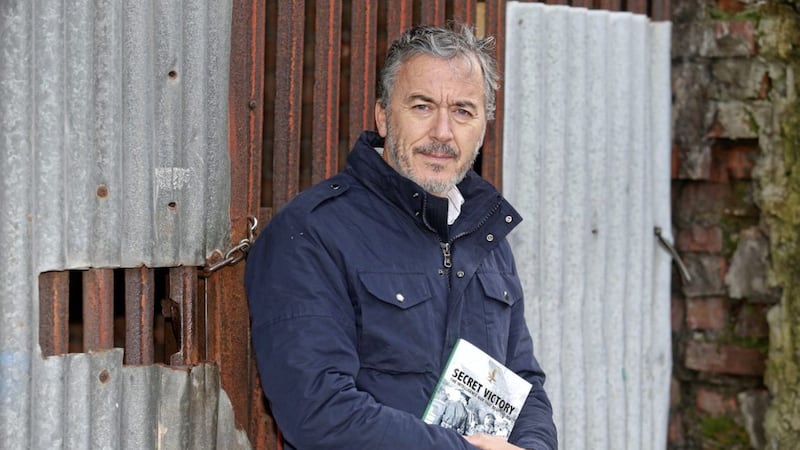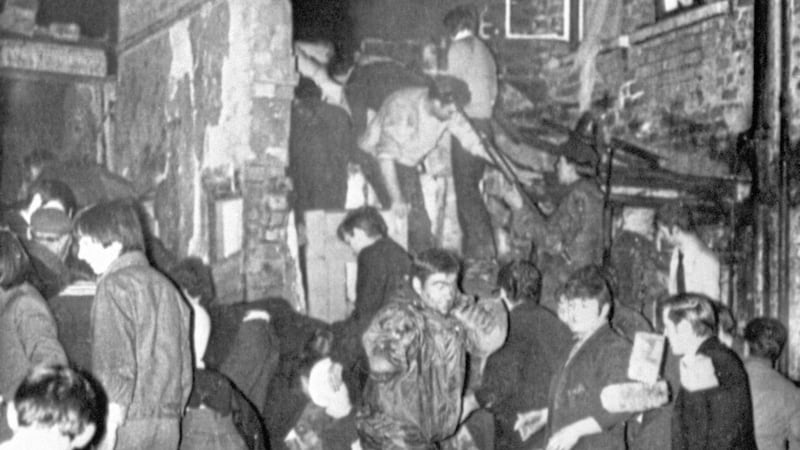Many Protestants, who are unionists, are oblivious of how Catholics who served as police officers in the Troubles were (and still are) abandoned by nationalism.
They are seen by the leaders of their community as British proxies defending the union rather than neutral cops upholding the rule of law. As ever in Irish nationalism, the constitutional issue intrudes.
After the Great War men like Tom Crean who was in the Royal Navy and his brother who was in the Royal Irish Constabulary were shunned in life and in death.
The same for WW2. My father’s best friend Jacko left Connemara for England after he did his bit against Hitler because of barely hidden prejudices and intolerance.
Bottom line. You are made to feel you do not belong. So, you keep your head down or leave.
This was in my mind for former colleagues who are Catholic in helping Kelda Crawford-McCann and Gerry Gregg make Cops on the Frontline.
The 60-minute film is about the Royal Ulster Constabulary in the Troubles. Eleven ex-officers give their experiences. It is their story.
A collection of candid and often tragic first-hand testimony by decent men and women is representative of a fine constabulary.
Most testimony did not air. One scene cut was the grave of an officer. In the same churchyard, ‘volunteers’ killed on ‘active service’. Imposing plinths with symbols and verse etched in stone speak - Ireland’s glorious patriots murdered by brutal Crown forces of unlawful occupation.
In contrast, Peter’s modest headstone (not his real name). A few lines. No reference to the RUC. Even though he was murdered, it does not say so. It does not even say he was killed. ‘Died’, it reads.
For pilgrims paying homage to those laying close to Peter, he was the Crown forces. A legitimate target for whom murder does not apply.
Peter left a young family. Cut down in his prime by ‘volunteers’, the sudden loss nearly killed his widow. A wonderful woman who raised a wonderful family.
To show the clip would have highlighted him and his resting place. The grave would have been vandalised, as Garda Jerry McCabe’s was in Limerick.
These are the ‘not to be spoken of’ dead. On this Thomas Gray writes: “Here rests his head upon the lap of earth. A youth to fortune and fame unknown.” The poem urges society to consider the lives of those overlooked and not “impute to these the fault”.
Getting ex-cops to speak out is hard due to a blame-based narrative defamatory of them that overwhelms and intimidates on every level and every angle.
In the Troubles, local political parties monumentally messed up. They vacated a crucial space at a crucial time, which the police then had to fill, only for politicians to return in Easter 1998 to take most of the credit for the peace.
Duplicitous politics accused the police of not doing enough through a legacy regime. This discriminates against cops, as the only statutory body set up to investigate the past was the Police Ombudsman. It also grossly deviates from criminal justice norms, as public Ombudsman statements damning of past police actions are based on opinion, not evidence. In other words, to publish criticism requires denying former cops the basic legal rights and due process afforded to every other citizen.
All police forces have bad cops, including the RUC. But they were few and far between. Collusion, core to the anti-cop narrative, is arguably history’s longest running fake news story.
Its big beneficiary is nationalism’s largest party that, it just so happens, excuses 302 murders of RUC officers. Or, as Gray put it several centuries ago in imploring us to probe beyond the headlines:
For thee, who mindful of the unhonoured dead
Dost in these lines their artless tale relate;
If chance, by lonely contemplation led,
Some kindred spirit shall inquire thy fate.
From the Crean brothers through Jacko to Peter. Live-time, nationalism fails to temper its intolerance and prejudices. And when northern nationalists - political and civic - treat their own this way, their Ireland looks bleak for Protestant and dissenter.
Cold headstones in a cemetery snapshot the past and the present. When a good friend in the film visits, he says a prayer at Peter’s grave and also where each ‘volunteer’ rests. Because, as he says: “I’m a good Catholic.”
- William Matchett is former RUC officer and author of Secret Victory: The Intelligence War that Beat the IRA. He is also Adjunct Fellow at the Edward M Kennedy Institute for Conflict Prevention, Maynooth.






